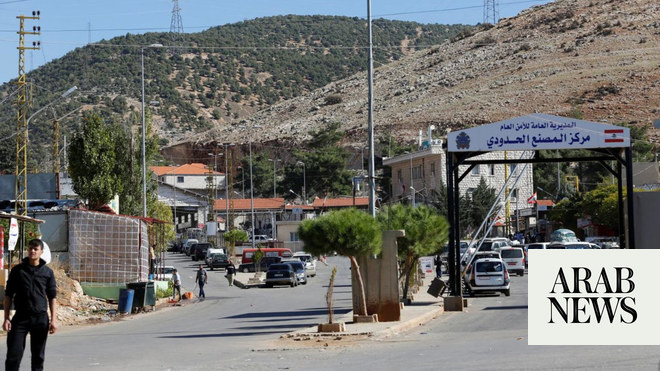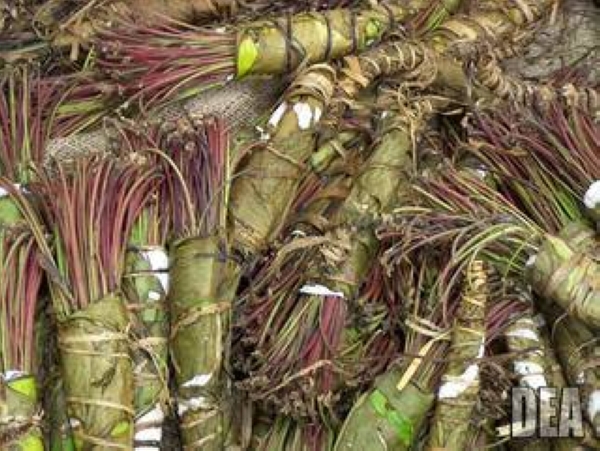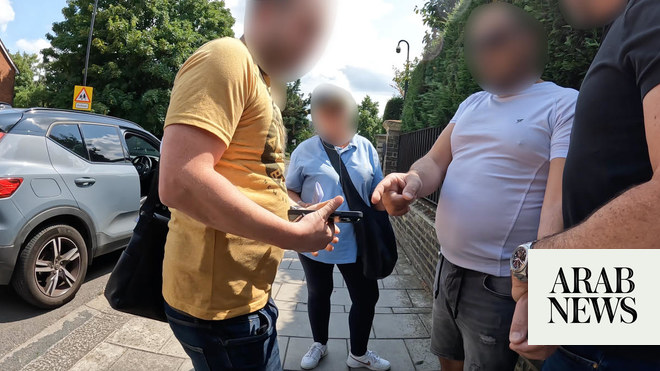
BEIRUT: Lebanon’s General Directorate of Internal Security Forces announced on Monday that they had arrested two Syrian nationals, aged 48 and 52, on suspicion of people smuggling.
The suspects had been accused of smuggling people of various nationalities from Libya to Europe via boats. Their names were not disclosed.
The suspects were operating in coordination with people of Lebanese nationality in the Wadi Khaled region in northern Lebanon, on the border with Syria.
The arrests come a few weeks after a boat sank off the coast of the city of Tobruk, Libya, resulting in the death of dozens of migrants.
The directorate said that the two detainees had fled from Libya to Syria after one of them was the target of a murder attempt by some of the victims’ families.
The two then secretly entered Lebanon and took up residence in the towns of Lala and Bar Elias in the Bekaa.
The second person was kidnapped by unknown people in the Wadi Khaled area and held captive for four months.
During his captivity, he was compelled to pay $43,000 in compensation to the people he had attempted to smuggle to Europe through Libya, but had failed to do so after taking their money.
According to the directorate, detainees confessed during interrogation to receiving $3,500 for each person.
They also reportedly admitted that hundreds of people were smuggled by sea from Libya to Italy and Greece using boats.
The boats’ capacities ranged from 250 to 500 people of various nationalities.
The operation took place in collaboration with the brother of one of the detainees living in Libya and another person residing in Greece, they said.
Also on Monday, a news report about a terrorist plot to blow up the columns of the historical Baalbek citadel sparked reactions that ranged from surprise to fear to skepticism.
The story, published on Monday morning in An-Nahar newspaper, cited a security report.
The report alleged the existence of a plot by fundamentalist terrorist groups to blow up the columns of Baalbek citadel because it was a pagan symbol, and to send a message to Hezbollah in its stronghold.
Culture Minister Mohammad Mortada, who represents the Amal Movement — an ally of Hezbollah in Prime Minister Najib Mikati’s caretaker government — neither confirmed nor denied the news.
Mortada said: “Regardless of whether it is true or not, the Jupiter columns remain a beacon and a symbol of civilization, unparalleled anywhere on the planet.
“Therefore it is not unlikely that our enemies might entertain the idea of targeting them with their dark, ignorant tools,” the minister said.
He added: “In any case, we reassure the Lebanese that Baalbek and its citadel are protected, and will remain standing tall despite the hatred of our enemies and the clouds of evil passing through our region.”
The minister criticized the circulation of the terror threat claim as the historic citadel had received a large number of tourists this year.
Baalbek Gov. Bashir Khodr also denied the report.
Khodr considered it to be “a result of the resounding success of this year’s tourist season in Baalbek, and the large numbers of tourists, especially foreigners, whom they are trying to intimidate.”
He said: “Leave Baalbek in peace.”
The city of Baalbek and its region are considered a key stronghold for Hezbollah. The party coexists with the tribes that live in the region.
Mafias and drug traffickers reportedly benefit from Hezbollah’s presence amid the spread of illegal weapons and the illegal crossings used for organized smuggling to and from Syria.
News about extremist groups, especially Daesh, occasionally surfaces in Lebanon.
The Lebanese army has announced a series of security operations over the past two years that have resulted in the arrest of Daesh-affiliated armed cells preparing to implement terrorist plots inside Lebanon.
A security source told Arab News that it was likely that there were sleeper cells of terrorist organizations in Lebanon that could be activated by a political decision, and there were lone wolves as well.
The source said: “Whenever political solutions become more complicated in Lebanon, tension is relieved through a specific security event, and perhaps what happened in the Ain Al-Hilweh Palestinian refugee camp last month is one example.”
In this context, the Lebanese newspaper Al-Joumhouria quoted a security source on Monday as saying: “The situation in Lebanon is very dangerous, with suspicious movements and attempts to sabotage and disrupt security.”
According to the source, the situation required the highest level of vigilance.
“The security and military agencies are on high alert and are performing their duties to protect it, through coordination with each other to thwart any attempt to tamper with the country’s security and stability.”









